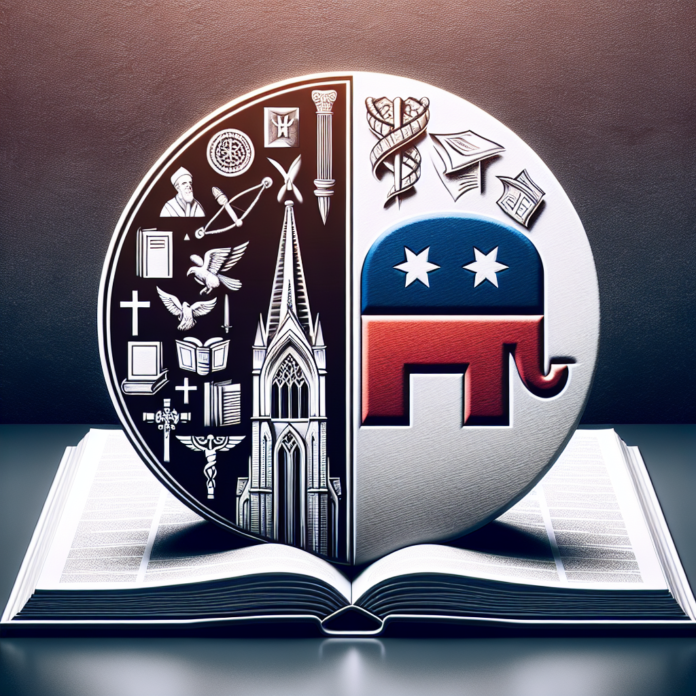Social Doctrine of the Church vs. MAGA Conservatism: A Comprehensive Overview
In the contemporary political-religious landscape, few topics ignite debate more than the intersection of political ideology and religious doctrine. Two seemingly juxtaposed perspectives that have captured significant attention in recent years are the Social Doctrine of the Catholic Church and MAGA (Make America Great Again) Conservatism. These two paradigms offer divergent pathways regarding social justice, economic policy, and the role of tradition versus progressive change.
At the heart of the Catholic Church’s Social Doctrine is a deep-rooted commitment to human dignity, social justice, and the common good. This doctrine emerged in the late 19th century, responding to the sweeping economic changes and social upheaval instigated by the Industrial Revolution. Pope Leo XIII’s encyclical, Rerum Novarum (1891), laid the groundwork by emphasizing the need for social ethics in economic activity and advocating for workers’ rights, decent wages, and the responsibilities of capital.
Over the decades, successive pontiffs have furthered this trajectory. Pope Francis, in particular, has become a vocal advocate for the poor and marginalized, positioning himself in stark contrast to particular political narratives that prioritize nationalistic and capitalist ideals over global solidarity. His encyclicals, such as Laudato Si’ and Fratelli Tutti, challenge followers to address the climate crisis and foster a sense of fraternity across borders, calling believers to a path of inclusion and unity rather than division and exclusion.
In contrast, MAGA Conservatism, which surged to prominence in the United States during the 2016 presidential campaign, often embraces a nostalgic return to traditional values, individualism, and assertive national identity. It channels a brand of conservatism rooted in deregulation, reduced immigration, and an emphasis on personal liberty often leading to economic policies that favor the wealthy under the guise of trickle-down economics. While it claims to represent an ethos of conserving American ideals, its practical applications have spurred social and economic disparities and have been seen as neglecting the needs of the vulnerable and marginalized.
The growing divergence between these two worldviews shines a harsh light on the cultural wars within the Catholic Church itself. On one side, there is a faction within the Church promoting a return to a rigid traditionalism, often characterized by a preference for the Latin Mass and a more dogmatic approach to ecclesial teachings. This group frequently resists the changes introduced by the Second Vatican Council—a pivotal moment in the 1960s that sought to modernize the Church, making it more accessible and engaged with the modern world. The Latin Mass has become a symbol of resistance for some, who see it as a bastion of unyielding tradition in an ever-changing world.
On the other hand, there are those within the Catholic community who align with the vision promoted by Pope Francis, advocating for a Church less concerned with maintaining ornate rituals and more attuned to the cries of the Earth and its people. This view champions a form of Catholicism that is responsive, vibrant, and in tune with contemporary social issues. Francis’ call for a synodal Church—one that listens and dialogues—reflects a progressive step forward, encouraging inclusion, understanding, and communal decision-making.
It is this progressive strand of Church teaching that appears more compatible with the ethos of the social doctrine—a forward-thinking Catholicism that seeks to engage meaningfully with the pressing issues of our age, including economic inequality, climate change, and social justice. Such progressive values advocate for policies and actions that prioritize human welfare over market interests and uphold global cooperation rather than nationalistic isolation.
The tension between these differing ideologies is not just an ecclesial matter but highlights broader societal questions: Should traditions remain static, or must they evolve in response to new realities? Is the preservation of a nostalgic past more critical than addressing the immediate needs of the present?
History offers insight into the perils of clinging indiscriminately to tradition at the expense of adaptation. The Industrial Revolution, the civil rights movements, and countless other epochs demonstrate the consequences and opportunities of choosing progress over stagnation. Rooted in these examples lies the reminder that while traditions can provide a sense of identity and continuity, an unyielding dedication to them without openness to change can result in disconnection and dissonance within communities and the broader society.
In navigating the complexities of modern faith-life intersections, it is essential to consider whom these frameworks serve. The Catholic Social Doctrine, with its continued evolution grounded in inclusivity and advocacy for the marginalized, posits a model that is both relevant and transformative. As the global community faces unparalleled challenges, from environmental crises to economic inequalities, a doctrine that prioritizes dialogue, solidarity, and holistic understanding offers not just hope but a roadmap for meaningful change.
Ultimately, as these discussions unfold, it is crucial to remember that at their core, both faith and ideological structures should aim to elevate human dignity, foster community, and engender a just society. In this task, a leap towards dialogue and progress should never be shunned in the pursuit of justice and peace.
